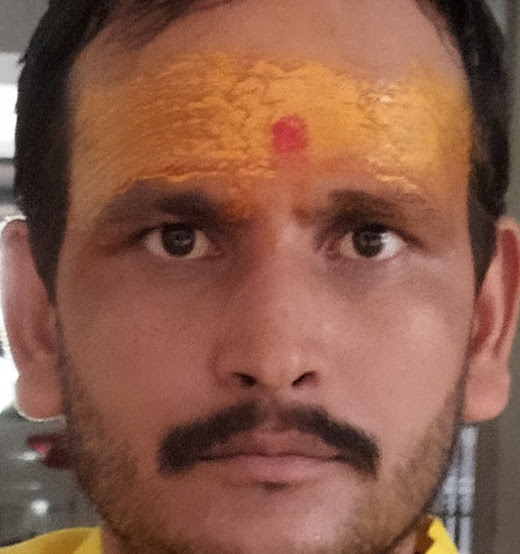Vastu Puja
In a world where individuals strive for happiness, success, and well-being, Vastu Puja emerges as a profound practice that harnesses the energy of our living spaces to create harmony and abundance. Derived from the ancient Indian architectural science of Vastu Shastra, Vastu Puja combines spiritual rituals with spatial arrangements to optimize positive energy flow. In this article, we will delve into the depths of Vastu Puja, understanding its principles, rituals, and the benefits it brings to our lives.
Understanding Vastu Shastra:
Principles of Vastu Shastra
Vastu Shastra is an ancient architectural science that focuses on harmonizing our living spaces with the natural elements and cosmic energies. It outlines principles for designing and constructing buildings to ensure the well-being and prosperity of the occupants. The fundamental principles of Vastu Shastra revolve around the proper alignment of spaces, the five elements (earth, water, fire, air, and space), and the flow of positive energy.
Significance of Vastu Puja
Vastu Puja holds great significance in Vastu Shastra. It is a ritualistic practice that aims to invoke divine blessings and purify the energy of a space. Vastu Puja acts as a bridge between the cosmic energies and the physical environment, creating a harmonious atmosphere that promotes positivity, abundance, and overall well-being.
Conducting a Vastu Puja:
Preparation for the Puja
Before performing a Vastu Puja, it is essential to prepare the space and gather the necessary materials. The area to be blessed should be clean and clutter-free. Items such as flowers, incense sticks, camphor, sacred water, and specific Vastu Yantras or symbols are commonly used during the puja. It is advisable to consult a Vastu expert or priest to ensure the correct procedures and rituals are followed.
Rituals and Ceremonies
During the Vastu Puja, various rituals and ceremonies are performed to infuse positive energies into the space. These rituals may include chanting of Vedic mantras, lighting incense, offering prayers, and performing specific homas (fire rituals). The priest or Vastu expert guides the process, invoking divine blessings and energizing the space with positive vibrations.
Benefits of Vastu Puja:
Harmonizing the Environment
Vastu Puja helps in creating a harmonious environment by aligning the physical space with the natural elements and cosmic energies. It balances the flow of energy within the space, reducing conflicts, stress, and disharmony among occupants. A harmonized environment fosters peace, happiness, and a sense of well-being.
Enhancing Positive Energies
By performing Vastu Puja, the positive energies of the space are amplified. It creates a conducive environment for personal and professional growth, enhancing creativity, focus, and productivity. The positive vibrations generated through the puja have a direct impact on the well-being of individuals, promoting overall prosperity.
Promoting Prosperity and Well-being
One of the significant benefits of Vastu Puja is its ability to attract wealth and abundance. By aligning the space with Vastu principles, the flow of positive energy is optimized, leading to financial growth and material well-being. Vastu Puja also promotes physical and mental health, bringing balance and harmony to the lives of individuals.
Vastu Puja for Different Spaces:
Vastu Puja for Home
Performing Vastu Puja in one's home is believed to bring peace, happiness, and prosperity to the residents. The rituals and ceremonies may vary depending on the specific requirements of the house, such as its orientation, rooms, and entrance placement. Vastu Puja for a home usually involves energizing the main entrance, prayer room, and other vital areas of the house.
Vastu Puja for Office
In the realm of business, Vastu Puja plays a crucial role in enhancing success and prosperity. Performing Vastu Puja in the office helps create a positive and productive work environment. The rituals may focus on energizing the workspace, conference rooms, reception areas, and important zones such as the director's cabin or CEO's office.
Vastu Puja for Business Establishments
For business establishments such as shops, showrooms, or restaurants, Vastu Puja is performed to attract customers, increase sales, and ensure overall prosperity. The rituals may involve energizing the entrance, cash counters, display areas, and seating arrangements. Vastu Puja acts as a magnet, drawing positive energies and success to the business.
Vastu Remedies and Corrections:
Identifying Vastu Doshas
Vastu Doshas refer to the imbalances or defects in the energy flow of a space. These doshas can lead to various challenges and obstacles in personal and professional life. Identifying Vastu Doshas is a crucial step in rectifying them through appropriate remedies and corrections.
Applying Remedies for Vastu Defects
Once Vastu Doshas are identified, specific remedies are implemented to rectify the imbalances. These remedies may include structural modifications, placement of energizing objects or symbols, use of colors, and other Vastu corrections. Consulting a Vastu expert or professional is recommended for accurate analysis and implementation of remedies.
Incorporating Vastu Principles in Interior Design:
Furniture Placement and Arrangement
Vastu principles can guide the placement and arrangement of furniture in a space. It emphasizes creating a balanced and free-flowing environment that maximizes positive energy. Furniture should be positioned in a way that facilitates easy movement, enhances natural light, and promotes positive interactions among occupants.
Color Selection and Lighting
Colors play a vital role in Vastu Shastra. Each color has specific energies associated with it, and selecting appropriate colors for different areas of a space can greatly influence the overall energy flow. Similarly, proper lighting, both natural and artificial, is crucial for creating a vibrant and positive atmosphere.
Use of Vastu-compliant Materials
The materials used in interior design can impact the Vastu compliance of a space. Opting for eco-friendly and natural materials such as wood, stone, and clay is encouraged. Additionally, avoiding materials that emit harmful toxins or have negative energy is essential for maintaining a healthy and energetically balanced environment.
Conclusion:
Vastu Puja, derived from the ancient science of Vastu Shastra, provides a powerful means of harmonizing our living and working spaces with the natural elements and cosmic energies. By conducting Vastu Puja and incorporating Vastu principles in our lives, we can experience enhanced well-being, prosperity, and overall success. It is important to consult experts and follow the prescribed rituals and remedies to ensure the desired results. Embracing the wisdom of Vastu Puja can transform our environments and positively impact our lives.
FAQs
FAQ 1: Can Vastu Puja be performed without an expert?
While it is possible to perform basic Vastu Puja rituals on your own, seeking guidance from a Vastu expert or priest is recommended for optimal results. They possess in-depth knowledge and experience in Vastu practices, ensuring the correct procedures and rituals are followed.
FAQ 2: Is Vastu Puja a religious ritual?
Vastu Puja is rooted in ancient Indian culture and traditions, but it is not limited to any particular religion. It is a spiritual practice that focuses on aligning spaces with positive energies, promoting well-being and prosperity. People from different faiths can benefit from Vastu Puja.
FAQ 3: Does Vastu Puja guarantee success and prosperity?
Vastu Puja is a powerful tool that helps create a harmonious environment and optimize positive energy flow. While it can significantly influence our lives, the outcome also depends on various other factors such as individual efforts, mindset, and actions. Vastu Puja acts as a supportive element in our journey towards success and prosperity.
FAQ 4: How long does it take to see the effects of Vastu Puja?
The effects of Vastu Puja can vary from person to person and space to space. Some individuals may experience immediate positive changes, while for others, it may take time. Patience and consistency in following Vastu principles and remedies are essential for long-lasting results.
FAQ 5: Can Vastu Puja help in resolving conflicts?
Vastu Puja aims to create a harmonious environment by optimizing positive energy flow. It can positively impact relationships and promote better communication and understanding among individuals. However, resolving conflicts requires open dialogue, mutual respect, and a willingness to find common ground, in addition to the energetic balance created by Vastu Puja.





